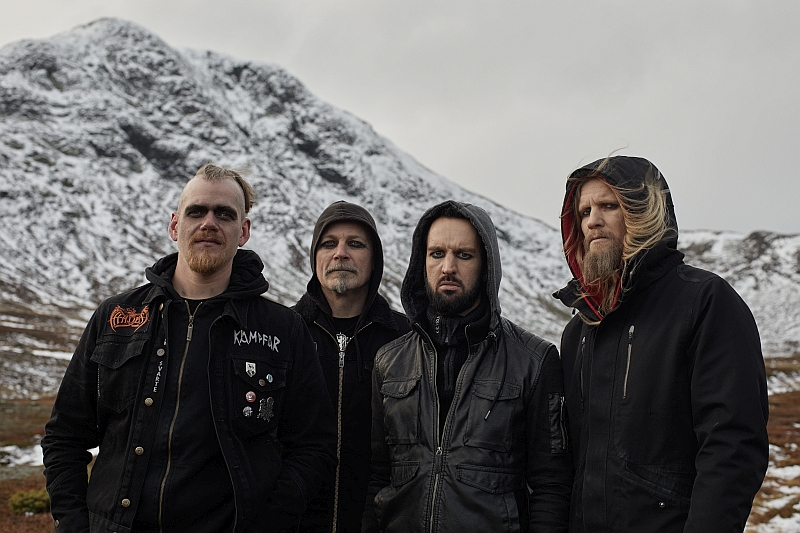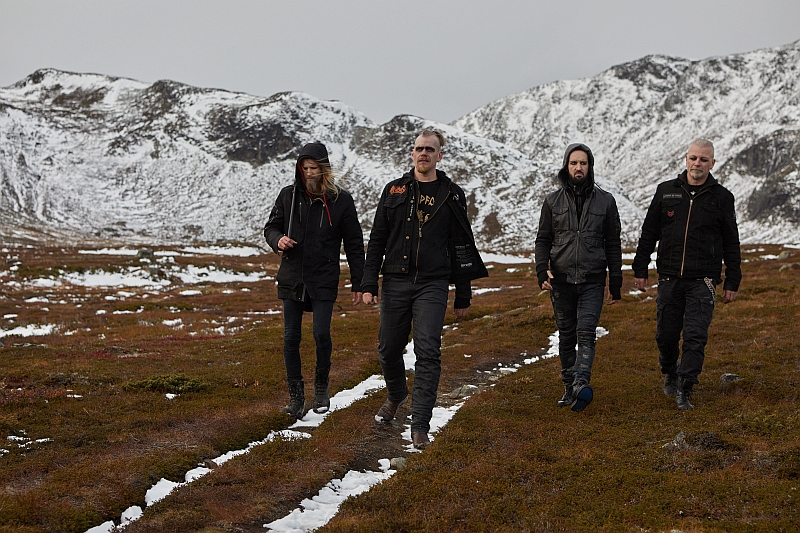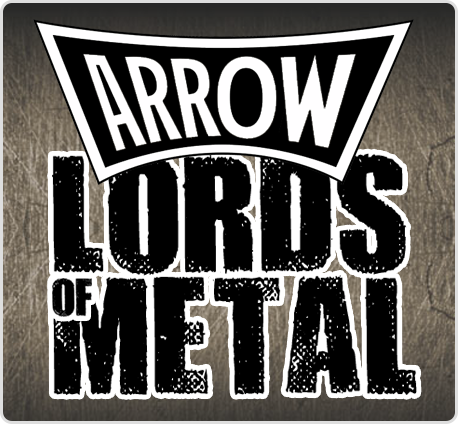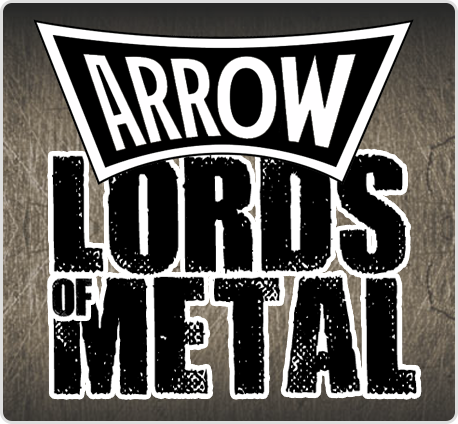
Ask Ty: “Some of us are closer to 50 than 40 now, and that comes with its own set of setbacks, but things are better now. ”
Kampfar kan inmiddels ook al een 25-jarig bestaan voorleggen, ook al is de band wel eens controversieel genoemd. Het was zanger Dolk die in 1994 zijn demonen trachtte te beheersen en muzikale aspiraties had. De band is intussen toe aan het achtste album ‘Ofidians Manifest’ maar niet voordat ze een break ingelast hadden na vorig manifest ‘Profan’ (2015). Drummer Ask Ty, ook verantwoordelijk voor enige vocalen, serveert ons de antwoorden.
Door: Vera Matthijssens Ι 1 juli 2019
Four years ago your previous album ‘Profan’ came out. What happened between 2015 and the break in 2017. Could you support ‘Profan’ with some tours and gigs?
We did several tours after ‘Profan’, deciding to focus on supporting other bands like Gorgoroth and Borknagar to reach out to more new people than in the past. Most of our tours for the last fifteen years have been headliner tours, which means you play to your audience, so a couple of those tours worked out really well for us. In addition we played our share of festivals, which is always an enjoyable variation from touring.
For the first time in your career you took a complete break from the band for one year in 2017. What was going on that you took this drastic decision?
It’s not really accurate that this was the first break in the band’s history, from when ‘Fra Underverdenen’ was released the band didn’t really do much for about three years, mostly due to health issues back then, too. Like then the decision to take a break, or what for us actually was more calling it quits but not being definitive about it, came from challenges in the personal lives of several members. Some of us are closer to 50 than 40 now, and that comes with its own set of setbacks, but things are better now.
During that break you even did not see each other. Why this isolation from each other in hard times?
We have this very intense relationship where for periods we spend most of every day together. In this sense we are more like brothers than friends, which also means that we naturally don’t hang out together that much when we’re not working on the band, there are just too many other people and places we need to give attention to outside of the band. Ole and I live so close that were it not for a single building I could see his house from mine, but we rarely hang out here in Bergen unless we’re at the rehearsal room.
How and when did the process of gathering together again take place? Can you tell a bit more about the writing process of the new album?
Ole started coming up with some ideas, he shared some with us, we started talking about meeting up and seeing what we could do with those demos. Then Ole’s father got ill, and during his last months we didn’t work on music much, but the seed was sown and after the summer last year we decided to write an album together and see what would come out of that process. The writing process was partially done here in Bergen, where Ole has his home studio and we would bring those songs into the rehearsal room, test them out a little, and then we would meet in Hemsedal for long weekends through the fall, refining the arrangements, discussing from morning to late night about anything from lyrical themes to the visual ideas, and within two months we were ready to record.
I can imagine that it was not easy and obviously your personal struggles had an influence on the record. Thus, can we see ‘Ofidians Manifest’ as a kind of catharsis?
For Dolk I am sure the word catharsis is fitting. I remember the last show we did on the Borknagar tour, in Rotterdam, afterwards him and I went to some friends of ours down there, and he was in a bad shape. Had it been up to me we would have cancelled all shows from there on out and called it quits, but we chose to go on for another year, which was not a great idea but came out of a duty we feel we have towards those we work with and those to pay to see us perform live.
Can you tell about the link between the madness of Medusa and ‘Ophidian’? It is also reflected in the artwork, isn’t it?
Yes, Medusa is a good image to use to describe the underlying emotions permeating through the album. And it’s not only about the mythical figure of Medusa but also from the way we incorporated the painting ‘The Raft of the Medusa’ by Théodore Géricault. These images are all just hints pointing towards the underlying stories on the album, in the same way as the lyrics telling parts of the story but not spelling it all out for anyone.
And in the video for ‘Ophidian’. Can you tell a bit more about the making of this video clip? Are there plans to shoot another video?
That video was a cooperation with Grupa 13, and was a way of trying to tell yet another side of the stories on the album. We had a good dialogue with them before we travelled to Poland to shoot our scenes, and together we developed these scenes in a way that we thought would fit the song, which I think we were successful in doing.
If compared to previous studio experiences, how do you look back at your time in the studio for ‘Ofidians Manifest’? Where did you record and who was involved as technician or producers?
This album was recorded in a similar way to ‘Profan’, we did strings in Ole’s home studio, drums in Abyss/Blacklodge studios with Jonas Kjellgren, and then we used Stamos Koliousis for vocals again, recording in Oslo. Like before the process tends to be very quick, we come well prepared and both drums and vocals are mainly first takes with the occasional second take to improve something, when needed. The drums were done in 3,5 hours, no need to spend extra time when you can just get it done.
Surprising is the contribution of two female singers in two songs. Please tell us about their background and how they got involved?
Agnete Kjølsrud should be a well known name to fans of heavy music, I think she is one of the best metal/rock singers there is, period. The decision to include her came from the need to add something to that song that we couldn’t add ourselves, and it was a completely collaborative effort where her and Dolk developed the vocal lines and lyrics together. As for the vocals by Marianne Maria Moen, the song ‘Det Sorte’ is a direct response to Ole losing his father last year, and as Marianne is my sister and this is the way she improvised at the burial ceremony for our father ten years ago, it was the perfect choice to bring her melodies into the song. I still have problems listening to that song, it hits hard for all of us really.

Promo photos for ‘Ofidians Manifest’ were taken just a few meters away from where the first Kampfar photos ever were taken. Please tell us about this place and the photo shoot…
The place is Dolk’s family cabin, a place he’s been coming to since he was a toddler. We’ve written parts of each album since ‘Mare’ there, and since the band started that cabin and that valley has been the source of Kampfar, where the roots truly begin. That is where we spend days in isolation working on music, only broken up by the occasional hike, often in solitude as the cabin fever is setting in, and where we can truly focus only on Kampfar and nothing else.
What are the characteristics of your home place Hemsedal? Can you tell a bit more about this Norwegian area?
None of us are actually from Hemsedal, my roots are maybe the closest to Hemsedal geographically, but I still grew up a couple of hours away. The good thing for us now though, is that it’s about four hours drive from where any of us lives, so we can easily meet up there and it doesn’t take a day of travel to get there for anyone. The valley is part of one of the main roads that tie the east and the west of Norway together, and for anyone ever doing a road trip through Norway I can highly recommend going through Hemsedal.
Which emotions come up when realizing that Kampfar has been around for 25 years now?
I don’t think we give it much thought, to be honest. The past isn’t particularly interesting, what is to come is where excitement lies. Of course, we can see that there is a calmness and confidence that comes with having done Kampfar for so long, though it’s only Dolk who’s been a part of this band for all those years, but I am more interested in what’s happening for the rest of 2019 than whatever happened in the nineties.
What do you see as milestones in your career until now?
I’d say when Jon and I joined in 2003 and when Ole joined in 2011 are the two main ones. The first one is when the band could start playing live and both Jon and I brought a little more harshness and heaviness to the band’s sound. With Ole came the one person we didn’t think existed, someone who didn’t replace Thomas’ style or playing, but who replaced his incredible and unique song writing style. Ole is the best song writer I’ve played with and there are some great song writers there, and he has been the last piece needed to take the band to where it should be, as the music is only one part of what we do, there is a lot going on outside of the music to keep a band like this working, and we are really a well oiled machine in every way now.
Of course we are already grandly delighted with a new album, but are you planning to do something special to celebrate this 25th anniversary of the band?
Well, in the sense that it’s a celebration I think ‘Ofidians Manifest’ is it. With this album we’re celebrating that 25 years don’t mean anything, the only value we are interested in is whether we can write a great album today, and whether we can play a great show today. Turns out we can.
For ‘Profan’ you won the ‘Spellemann’ Grammy Award. Is this something that moves you? Is it important for Kampfar?
I think it had a certain importance to the band, to the way we are being perceived by some. And in the eyes of people around us who don’t know or understand metal I think it made us legitimate, like there was this official sign of approval that tells them we’re doing something valuable. But for ourselves, I think it is hard to think that it’s all that big, as this is music and you can’t quantify what is good and isn’t. That said, according to one jury member, we were the clearest winner in years, so I guess that approval from our peers counts for something.
As usual, I got a slightly different feel from this album, if compared with former ones (and that’s fine), but how do you see this as creators of the disc?
I think it’s both a natural continuation of Kampfar while also seeing that new things have appeared in our music. Mostly I am focused on the songs themselves, and to us there are seven great songs on here, who together make a great album.
What are the plans for the near future and for playing live?
We’ll see, we have turned down a lot of offers this time, trying to not go all out yet. We need to take things as they come and do what works for us, and then time will tell how many festivals and tours we will do this year and the next.
If there is something you’d like to add, please feel free to do it here…
Thanks for a good interview and hope to see you and all our Dutch friends soon. The Netherlands is very close to our hearts, after all.
Check de onderstaande socials voor meer informatie over deze band.



